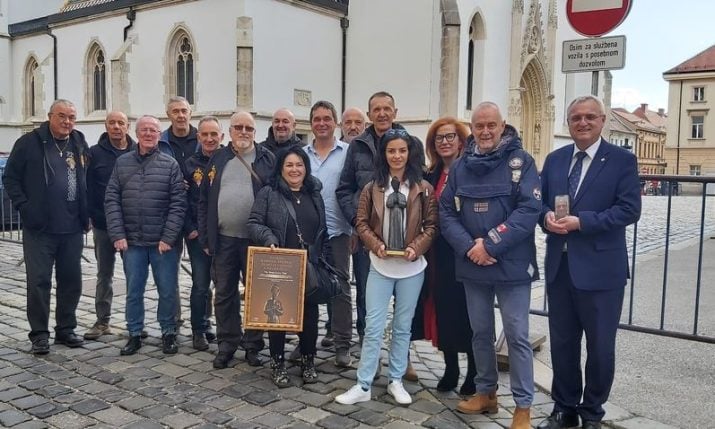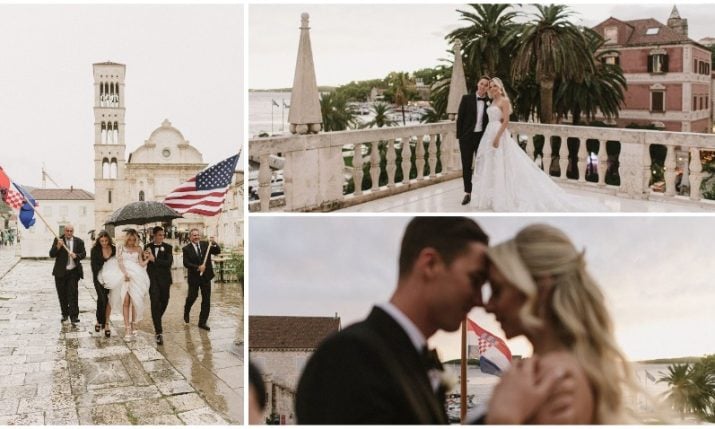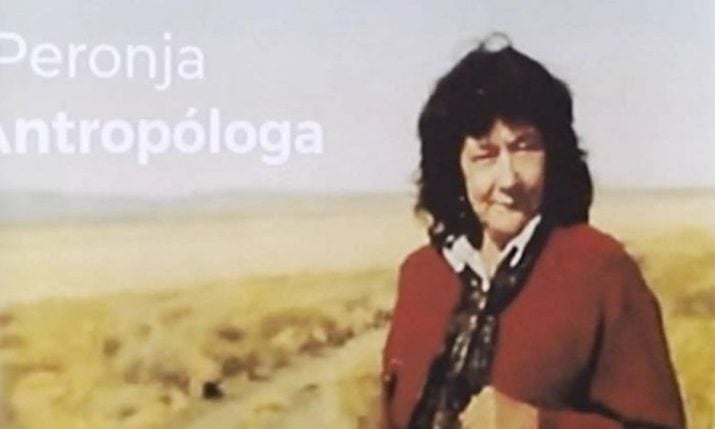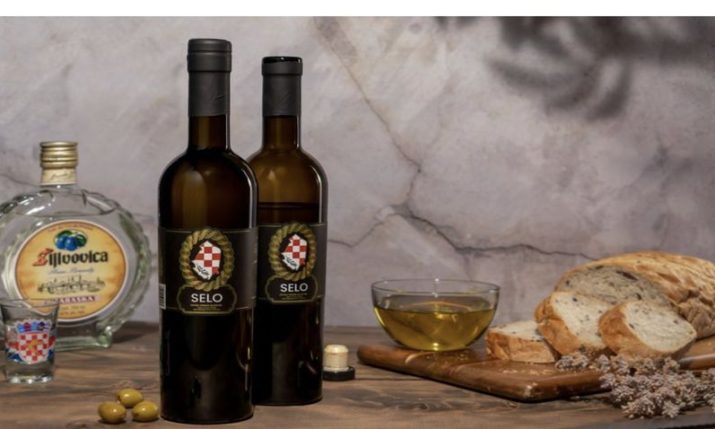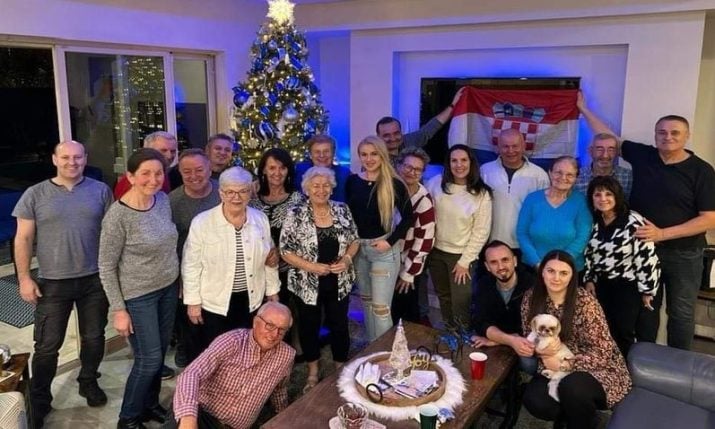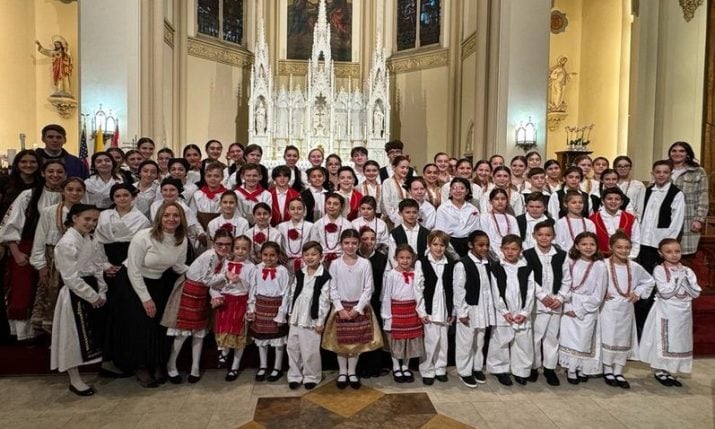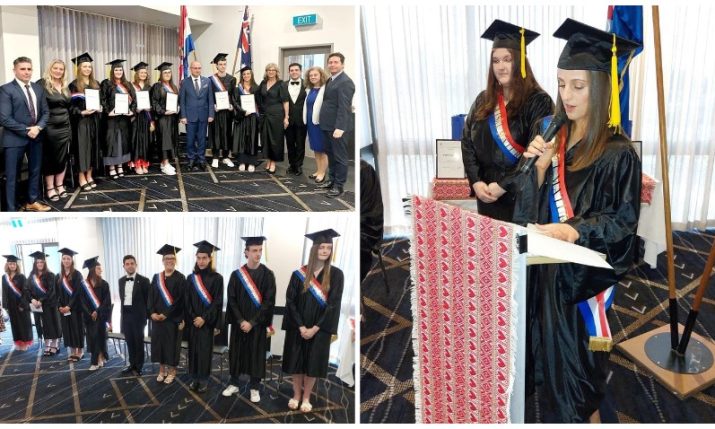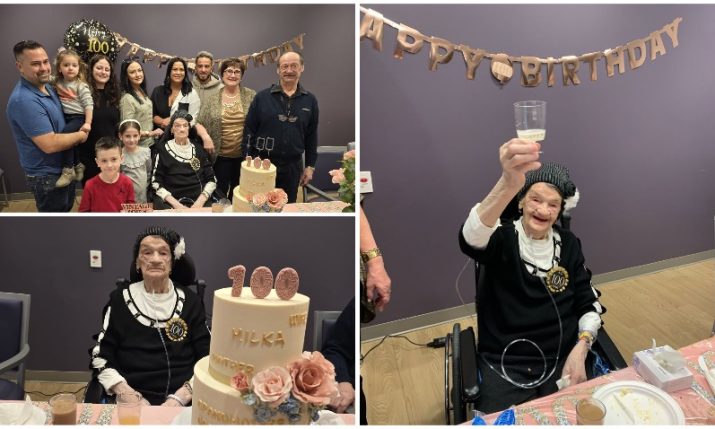I moved back to Croatia from USA with my young family – my story
- by croatiaweek
- in News
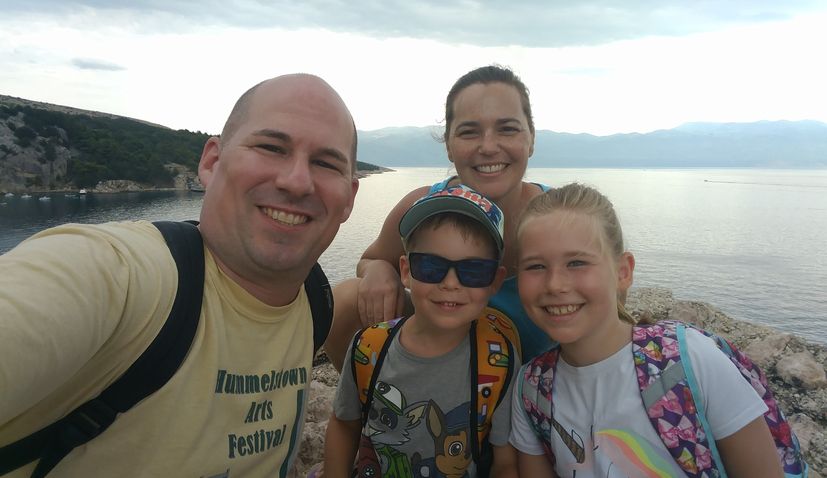
Ivan and Brooke with their kids Ljiljana and James in Croatia (Photo: Private album)
In recent years, an increasing number of Croatians living in the diaspora have been contemplating a return to their homeland, Croatia.
For those with young families, this decision is often fraught with challenges and uncertainties. However, for Ivan Hrabrić, this choice became a reality a two years ago when he made the move from Pennsylvania to the Croatian capital.
Ivan has been living in Zagreb with wife Brooke (Krović) and children Ljiljana and James for a while now and we sat down with him to explore his experiences and insights into the complex decision of moving back to Croatia with a young family.
Was Croatia a part of your life when you were living in Pennsylvania?
Croatia was a large part of my life since birth. In the area where I grew up there was a large steel mill and so there was a large community of Eastern European people including Croatians. My mother’s grandparents emigrated to the U.S. between the years 1895 and 1905.
They settled in Steelton and worked in the steel mill. My Grandfather worked there as well. My father came to the U.S. from Krk in 1969. He was one of many laborers from around the world brought to the U.S. to fill the shortage of workers caused by the ongoing Vietnam War. They met in the Croatian Dom in Steelton during a dance.
I grew up dancing to tambura and participating in kolo and tambura groups in Steelton. After high school I lived in Zagreb for a year from October 1, 1994 to September 28, 1995. During that time I danced with KUD Croatia in Prečko while attending school to learn the Croatian language. Shortly after returning home from that year I found myself working as a translator in the US and then in Bosna-Hecergovina as part of SFOR.
When I left that and returned home I pursued a career in education and worked as an elementary school teacher in Pennsylvania. During that whole time I continued to dance in kolo groups and even took over as the director of a tambura orchestra in Steelton. We traveled the U.S. and Canada performing at different festivals and as guests at the many Croatian Homes.
I also traveled back to Jurandvor and Baška as often as possible, and kept in touch with my friends and family from Prečko and Špansko. Some of them would tell me to move here permanently. Jelena Primorac was a childhood friend from Pennsylvania who moved here and started a company, Speak Up, to teach English here in Zagreb. She was adamant that I should move back. She knew I would enjoy the lifestyle here more. She even offered me a job. I took it all as somewhat light-hearted, but considering that I am working for her now, I would say she was serious.
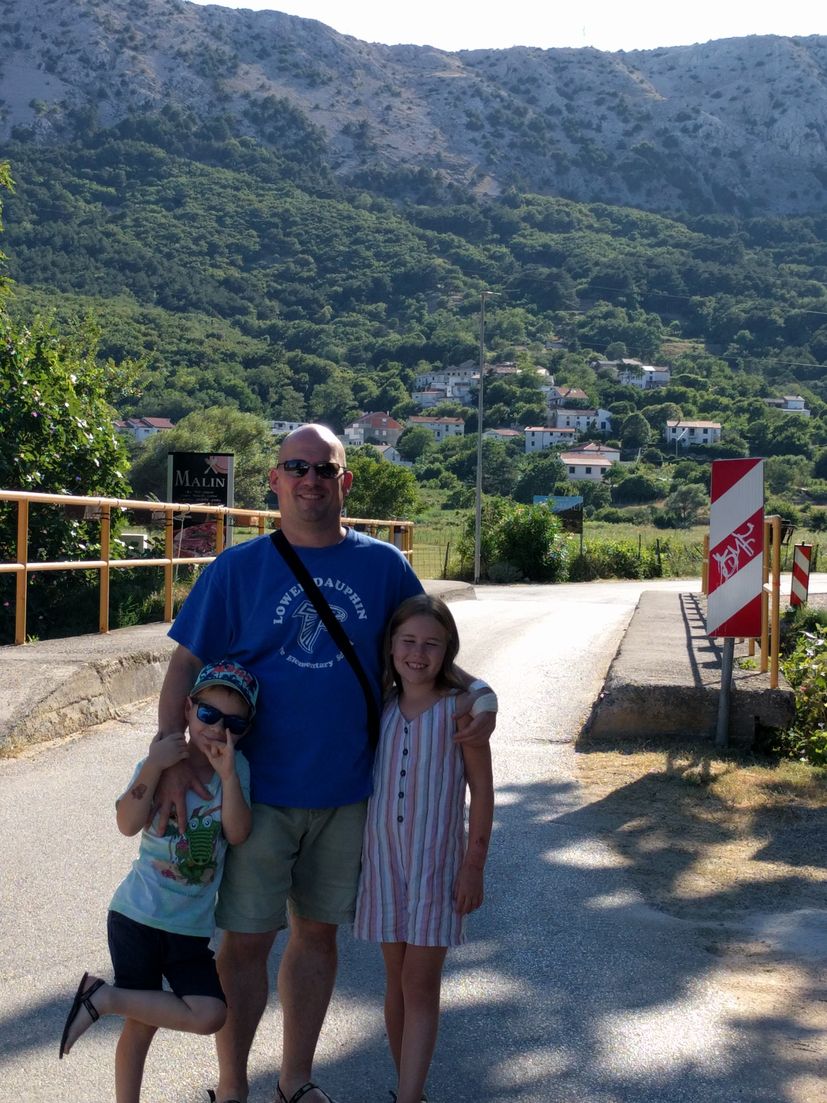
Ivan with his kids on Krk with the village of their Deda’s birth, Batomalj, in the background (Photo: Private album)
Does your wife have Croatian roots?
My wife’s father’s family also emigrated to Steelton in the early 1900’s. They came from the area to the west of Glina. Growing up she was not as involved in the heritage. She was aware of the music, foods, and the community, but not active. That changed after she moved back to the area and decided to go check out the tambura group. So one Wednesday evening lightning struck the same place twice and not more than two meters from where my parents met, I met my wife.
She joined the group. We eventually married and she came to Croatia for the first time on our honeymoon. I invited her mother and father to come along as they had never been here either. They stayed for about two weeks and then we stayed another few weeks after they left. On the day that Croatia entered the EU, we went down to see if we could find her family. That was a big “if.” We did not know if they survived the war, or if they had returned if they had fled. After a crazy day and many, many stops at different places we did find them. They had returned to the area and we were able to go to the place that her great-grandfather left.
We started a family. Tambura and kolo remained a part of our lives. In addition to the cultural aspects of the diaspora we would stream Croatian radio. But even before that she had said she would like to live in Europe. I was the one that kept saying no, however. I say this because everyone who knows us always thinks it was me who made this decision. It was Brooke.
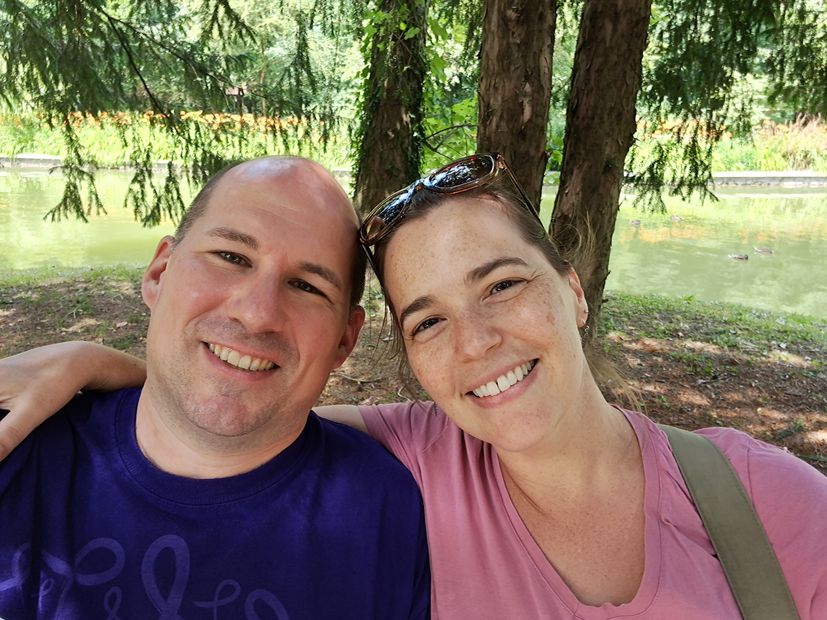
Ivan and Brooke (Photo: Private album)
When did you move to Zagreb and what made you decide to move and live in Croatia?
We arrived at the end of June two years ago (29.06.2021). We were supposed to move a year earlier, but, only a week after putting the house up for sale, the entire state shut down and a couple months later COVID had about the entire world in lockdown.
The decision to move came a lot earlier. I was offered a job to teach English in a school back in 2003. I had a friend in Baška who very seriously told me in 2009 he thought I would be happier here. When I started dating my wife in 2011 she said she wanted to live in Europe and never once wavered from that. And of course Jelena kept saying I would do well as an English teacher in Croatia and there was always a spot for me at Speak Up. I kept resisting all this pressure because I was used to the US and was comfortable. Change is scary and difficult. Routine is not.
The change came in July of 2016. My wife was pregnant with our son, and I was doing a number of side jobs to make extra money. I was sitting in a tent selling fireworks and put it out on Facebook because the days were long and mostly boring. If people were around and wanted to hang out, I was there. My best friend Emil, from Špansko, sent me a message basically asking what was going on in my life that I was sitting in a tent selling fireworks.
I had plenty of alone time to think and so I did. Only two people came to visit over the two weeks because that just is the way things are in the US. Everyone wants to but something always comes up. Everyone is busy. I started looking at my friends here in Croatia. They were all going to cafe’s, the beach, and on trips. Now I am not naive.
I know life is hard here too. But Croatians are naive if they think because you are from the US, life is easy. I was used to our US type of “difficult.” But I started to think about my children and what I wanted them to become used to. That night I went home and spoke to Brooke. I asked how serious she was about moving and said that I was open to the idea.
We spent the next few months researching and talking. She speaks French and had lived in France for a short time during college. We weighed that against our privileges here in Croatia: right to citizenship, family, friends, familiarity with the culture and language, and a job waiting. So she looked at me, smiled and said, “I have no problem with living in Croatia.” We decided, based on the children’s ages, that the summer of 2020 would be the right time to move. Of course, COVID delayed us a year.
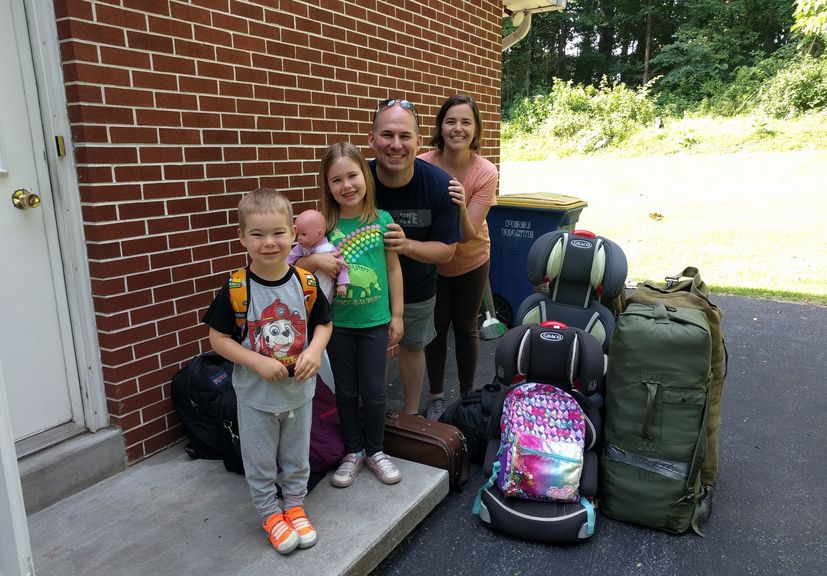
Leaving Pennsylvania for Croatia (Photo: Private album)
What was the reaction from family and friends?
I was honestly surprised by the reaction. Brooke’s parents were upset and, ironically, my father, who was born in Croatia, was not happy with it. My mom was the lone parent who basically was supported our decision. She looked at it as being our lives and if it doesn’t work out, we can always go back.
Mostly everyone else in the U.S. was excited for us. They saw it as a great experience for the children and among the diaspora it was seen as something that makes total sense. A lot of them expressed that they would live vicariously through us.
There were a lot of comments about jealousy and “wish I could.” Honestly, I don’t think many people are willing to give up the comfort of their lives. They all come here from time to time and live a few weeks as tourists on the money they make in the U.S. I did the same thing.
It’s very easy to romanticize and have an idealized notion of life in Croatia when you consider living it on a western salary. That reality is what will keep most American-Croatians in the group of summer tourists who might one day retire to Croatia.
It is a lot different to move to Croatia and take home an average salary for this country. That is why I still say, after two years of being here, that our plan is to live the rest of our lives here as long as we can make it work. Im still trying to figure out the long-term financial stability that will allow my family to do this. It’s still too early to say.
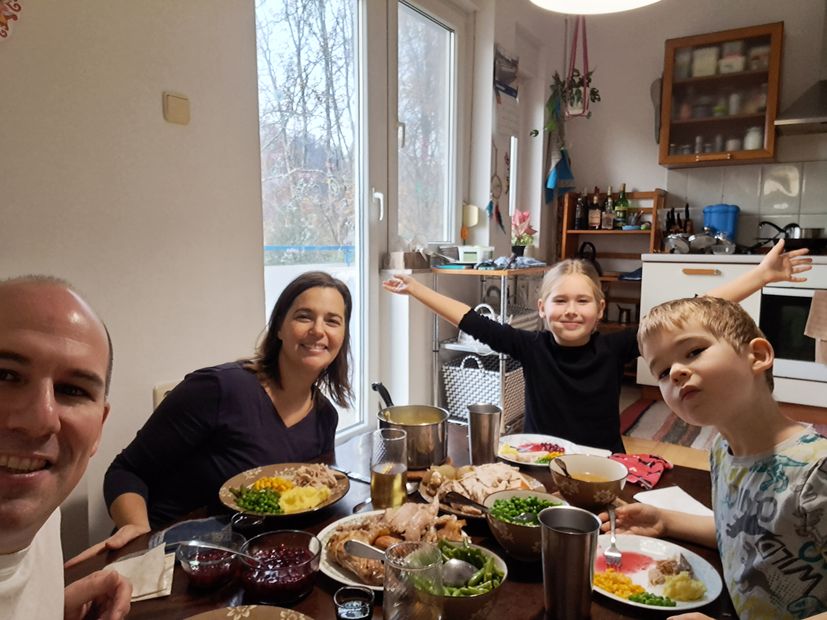
Celebrating Thanksgiving last year in Zagreb (Photo: Private album)
I planned on needing to supplement life with our savings for a year or two. However, there is a time limit on this. Eventually, we have to make a Croatian income work, and as pretty much everyone who is native to this country knows, that is not easy.
Even so, the most surprising response of support was early on in our research. I had sent a message to my Croatian friends and family with whom I was connected on Facebook. This was back in late 2016, maybe early 2017. I wrote about our plans to possibly move to Croatia and asked for their opinions.
Now this included people in their 20’s to people in their 60’s, people from Zagreb, Slavonija, Dalmatia, and Primorje, and people who were single, married, and married with children. I expected a 50/50 split. I expected 50% to say go for it and 50% to say I was out of my mind to consider leaving the U.S. for Croatia. Not one person told me not to come, not one.
There were a few who mentioned the fact that the financial situation would be difficult. Perhaps it was because they knew me and knew what I value in life. Now that I am here, I have had people question the decision, but it doesn’t take long for them to also see that there are other things in life, unconnected to money, worth pursuing.
How have your two kids settled in?
My daughter Ljiljana turned 7 right after we arrived, and James turned 5 that September. Each of them had a unique path and journey, as would any individual.
Ljiljana lamented every change as it was made. When we sold our home, moved in with my parents for a couple months before leaving, packed and shipped our (their) belongings, and eventually first arrived, there were meltdowns and big emotions. I sit here laughing as I remember her saying, “Just tell me why. Give me one reason why we are doing this? Do you even know why?” At each step we would hear this. It made sense. She was older and more attached to the conditions of our life in Pennsylvania.
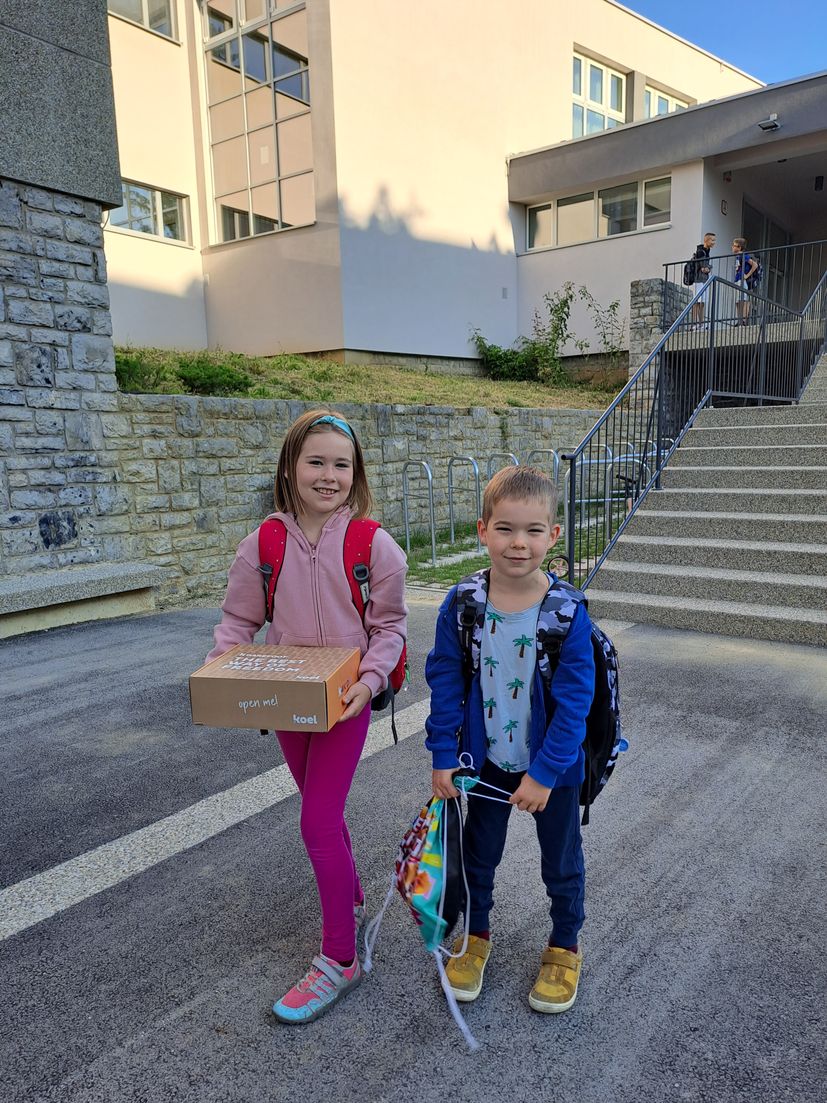
Ljiljana and James (Photo: Private album)
The extra year allowed her to form stronger bonds, friendships, with kids at school. She was losing everything she knew, of which she reminded us on a frequent basis.
Once we got here, the anxiety and stress of it gave way and the freak outs lessened. When we finally moved into our own place and with her bed and clothes and toys, that was another big step back toward normalcy. Then she began first grade.
Fortunately, having attended two years of public education in the U.S. (Children start much earlier, not that it has a positive impact.), she already knew most of the academic content and was able to solely focus on learning Croatian. She managed that really well. By the New Year, she was quite happily settled into her life here in Zagreb.
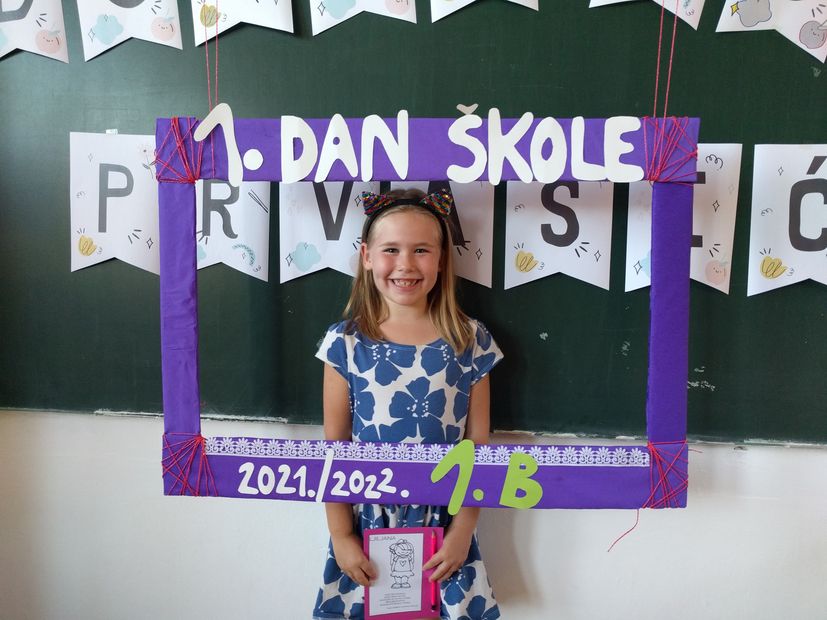
First day of school (Photo: Private album)
My son’s Path was different. James’s only concern was if they celebrated Christmas here, which is his favorite holiday. I told him about Advent in Zagreb and he was sold. There was very little emotional reaction to the move. He seemed not to care about it at all. He enjoyed traveling around the city on busses and trams and life was very nice.
He didn’t start attending vrtić until the beginning of December because the word translates to English but the concept is different. In any case, he seemed to be okay with going. He only bonded with the English-speaking Tetas and students. In retrospect this was a sign of the storm that was waiting.
So he seemed to be doing just fine, New Year’s came, Christmas was over and he told us, “Okay, we can go back to America now.” And then we spent the next two months dealing with the emotional effect of the move on James. The beauty was that we watched his acceptance and then he took off too. There were no longer two Tetas with names and “that Croatian one,” but three Tetas with names.
He befriended children regardless of whether they spoke English or not. He also started using Croatian words and phrases on a regular basis. “Nije fer,” and “Mogu još,” were the first two. Now he reads the Croatian books with us and is excited about being Croatian.
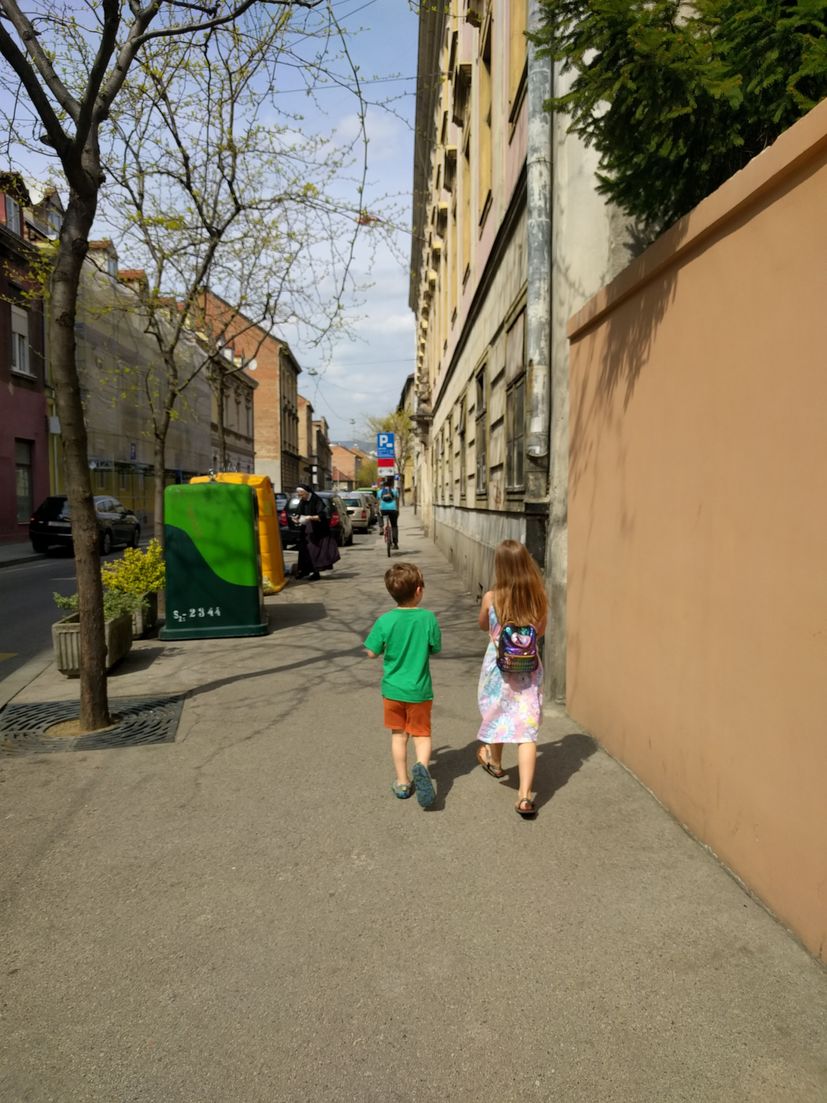
(Photo: Private album)
I want to share one story about James. He was fascinated with the Bloody Bridge and the story of Gradec and Kaptol from the very beginning. After moving into our apartment, he asked me to make him a very specific breakfast: Two sunny side up eggs with two “hot-dogs” between them with ketchup on the meat. He then explained how the eggs represented Gradec and Kaptol, and the meat represented the bloody bridge. Thus, he invented what we now call the “Bloody-Bridge Breakfast.”
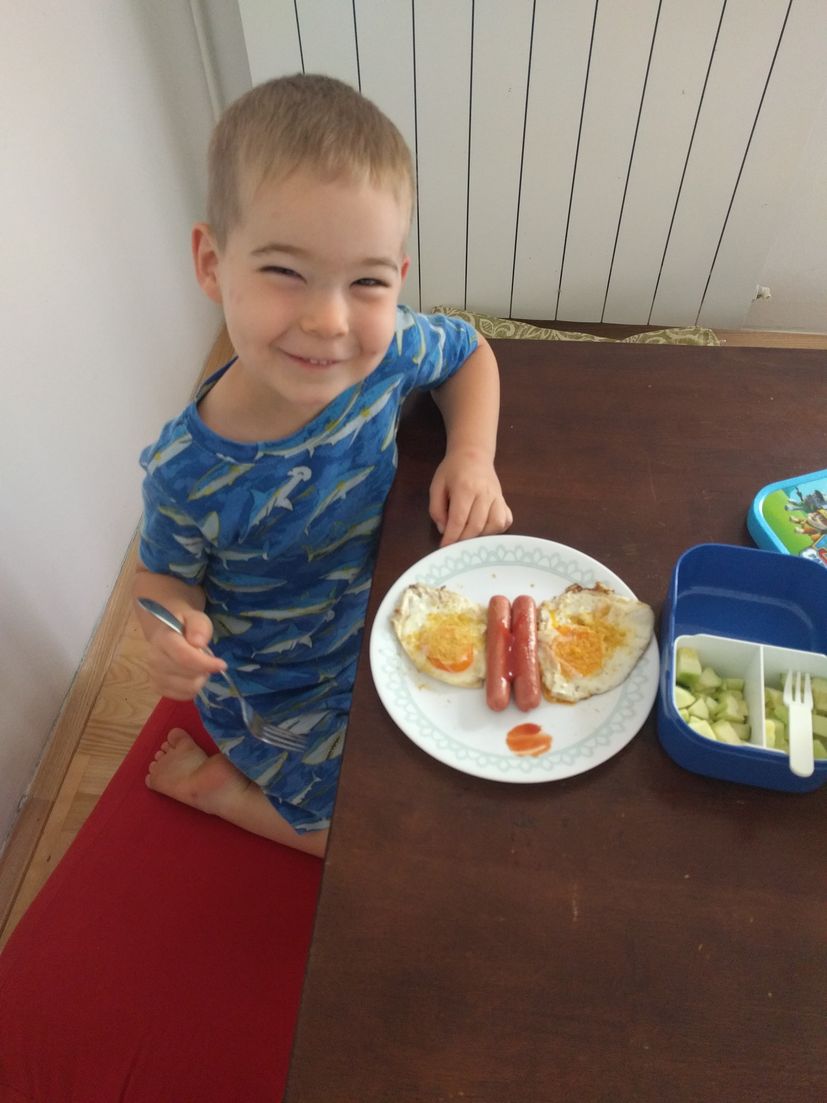
Bloody Bridge Breakfast (Photo: Private album)
My wife and I rent an apartment in Medveščak not far from where I work. I don’t own a car and don’t want to own one. I had owned a car since turning 16 and had to drive everywhere. Unless you live in a major city, there really is no other option. Everything is a drive. There really is no way to walk in the U.S. and most places are fully unconnected to any type of public transport. I drove 40 minutes to work and 40 minutes from work every day. When we came here we looked for a place that I could be close to work so I could be home more often. I am three tramp stops from my work now.
I ended up going to work with my friend Jelena at Speak Up. I direct conversation classes for people who wish to improve their English. We also have younger students, teenagers, who work on English conversation and writing. I was an elementary school teacher for 12 years in the U.S. I do miss the traditional classroom and working with children somewhat, but I do enjoy helping people learn to communicate better. I understand the struggle our clients go through. I often say I need this same type of class to improve my Croatian. Speak up is on Medveščak ulica right by the Grškovićeva tram stop. My living and working situation right now is nice.
What do you like about the lifestyle in Croatia?
When I answer this I am fully aware that it isn’t the case for everyone everywhere or that this can’t be found to exist in the U.S. but there is a difference in general.
People are more honest with you on a personal level. People will say things that carry no judgment and are more a report of what they see, think, or feel without any intention to put you down. I remember during the year that I lived here (1995) thinking that people were rude.
Eventually, I realized this is because the idea of politeness in the U.S. leads to people not being straight with you. As an example, I gained 30 kilos between two times that I saw friends here. Friends and family greeted me and then all said, “Man, you got fat.” I remember being so taken aback by it, at first. But then conversation just went on.
There was no judgment or shame and, in the end, what they said is an obvious true observation. In the U.S. they conversation was different. “Oh it’s so good to see you. You’ve changed. I almost didn’t recognize you?” Then, for the rest of the conversation I know they are thinking about how fat I got and probably, as is what people do, they talk about it behind your back.
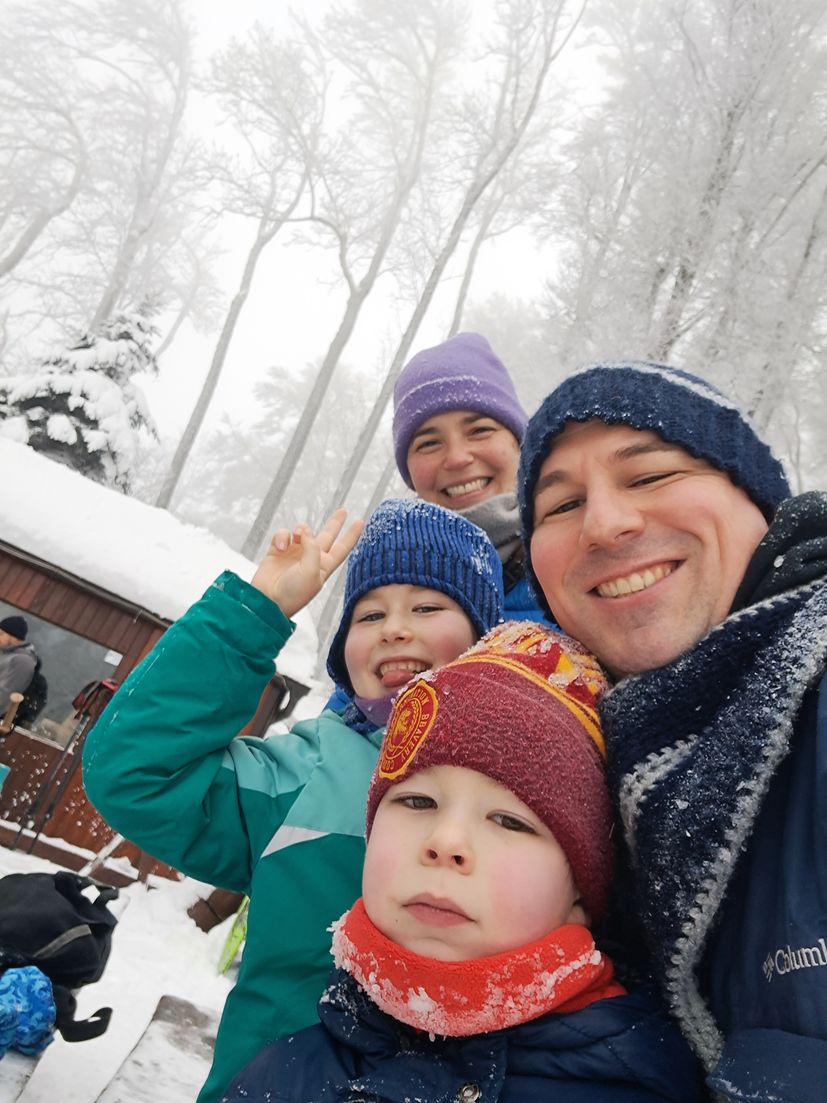
On Sljeme (Photo: Private album)
People here have a disagreement and argue and yell and then talk about going out to coffee. In the U.S. you often don’t know that someone is mad at you, they just cut you out of their life. I think wholesale, it is why we Americans are so quick to jump to cancel culture. It’s very passive-aggressive. In Croatia, I think people are more likely to just express what they feel and move on.
I like the way people feel they can take the time to enjoy a moment. People recognize the need for down-time and the fact that very little is critical to get done right now. The best way I can express this is another anecdote. I danced with KUD Croatia the year I lived in Zagreb. We were in Spain at a festival and staying in a dormitory. One day after practice we went into the hall and there was a vending machine. My sister and I put in some pesos and got a juice. Our other colleagues were amazed by this. It hit me that I never saw a vending machine anywhere in Zagreb. Today, there are a lot more places to buy a drink on the go, but back then you pretty much had to go to a cafe. My sister and I helped the others get juices and as we drank them we started talking about how these things are everywhere in the U.S. I will never forget the exchange:
“But why”
“You want to get a quick drink.”
“So go to a cafe.”
“You don’t have time to go to a cafe.” said incredulously, “You don’t have time to sit at a cafe and drink one soda?!”
And unfortunately, the predominant feeling is, “No.”
Another example of this is billing. In the U.S. if you are one day late with a bill you will be charged late fees. You can call and, perhaps, if you have never been late before, they will remove the fee. I was once late paying a bill and even though I had paid in full on time every month for over ten years, they charged me the fee. It makes you neurotic about paying bills. I remember my neighbor laughing at my concern over being a day late on the electric bill here.
Definitely, the safety. People see it on the news, but I cannot express the toll it takes to never feel safe, especially when you have children. Gun violence in the U.S. is so pervasive that it affects you even if you feel you are safe from it. Every year we had lockdown drills in our school for what we would do if an intruder came in.
The last seven years before moving this took the entire morning. It was a discussion of what we would do in the classroom, what they were to do if on their own in the school. We walked to the point outside the school where they were to run outside where law enforcement and paramedics would be waiting. We talked about what to do if in the mall, at a concert, in a movie theater, etc. Our room door was to be locked at all times and there were “secondary locking devices” right inside the door.
My 5-year-old daughter came home one day and told me how they practiced “being quiet in the closet if someone came to hurt us.” Students from 5 years of age go through this every year until they graduate and now many businesses in the U.S. hold regular trainings with their employees. There is a cost to life in the U.S.
What things do you miss about the US?
I miss the effectiveness and simplicity of “paperwork.” Everyone knows there is a problem with the system here. In the U.S. The information on what is needed and procedure is clear and almost always accurate. Here it largely depends on who answers your question. Rarely do I ever have a simple straightforward experience.
Never have I ever accomplished something in one go. People in the U.S. will complain about it as weel and I won’t say they shouldn’t. Things can almost always be better. But when I mention the problems with paperwork here and U.S. Americans tell me they “know,” it makes me laugh. There are two things I like to tell Croatians to demonstrate the efficacy of paperwork in the U.S.
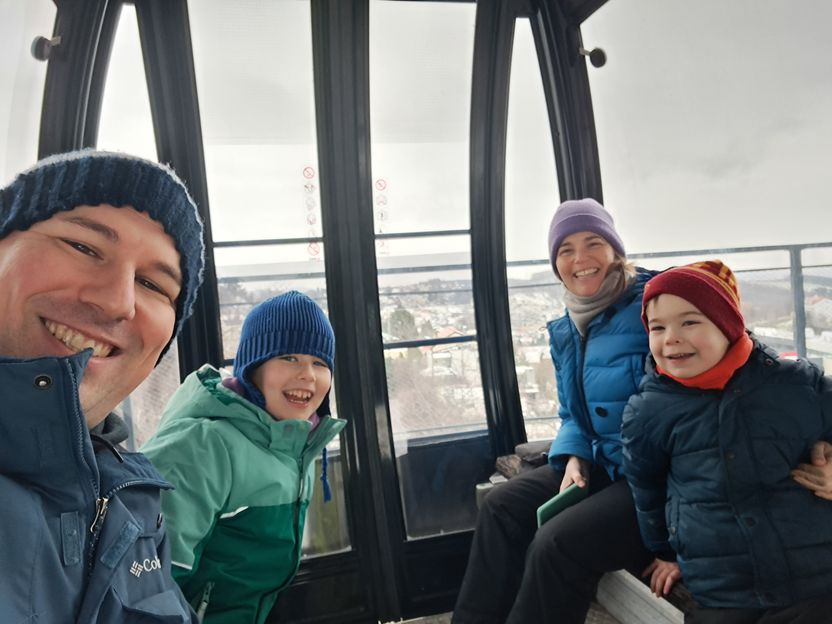
(Photo: Private album)
Renewing a driver’s license: I get a reminder i the mail. I fill out the form and enclose the payment and send it in or just go online and fill out the form and pay with a card. Then I get a card that I take into the office. I have never waited more than 20 minutes, they take my picture, print my new license, and I walk out the door done.
I needed a copy of my marriage certificate with an apostille. My mom left the house at 8am. She when to the place to get them, requested it, gave them the payment, went to another room for the apostille, paid them for it, waited 15 minutes, went to the post office, mailed it to us and was home by 12 noon.
Either of those situations, in Croatia, would involve hours of waiting, running to multiple locations to make payments and back, and multiple trips on different days to be completed.
I miss the driving culture in the U.S. Driving laws are strictly enforced and for the most part people drive more safely. It’s not that U.S. Americans are better driver’s, it’s the constant presence of traffic law enforcement. If people tend to speed in an area, the police will come out and start issuing tickets. Police often have a quota for the number of tickets they must issue and bribing a police officer, even offering a bribe, is really unthinkable. I always joke that in Croatia no one is ever in a hurry until they are behind the wheel of a vehicle. I would love to see the driving laws more strictly enforced here.
The pedestrian situation is better in Croatia. We don’t have many pedestrians in the U.S., and even though there are laws about pedestrian right of way in the U.S. that aspect of the law isn’t often enforced. I still have to get used to walking up to a crosswalk and cars actually stopping to let you cross. It was much better in the 90’s but still is very good.
Frank’s Red Hot: I love the stuff. I did recently find it here but it is so expensive. When friends visit I often ask them to bring me a bottle. There are a few other flavors that are different here. Overall, we much prefer the food here.
Has anything surprised you about the move, something you didn’t expect before moving?
I am still shocked by the price of toys here. They are so expensive. We brought a lot of the kids toys from the U.S. and I am glad because it would be so much to replace it.
Somewhat connected to that is the lack of a culture to buy/trade used goods. Selling online is common in the U.S. and most things will go quickly. I was surprised how little response there was to things we put online and how little there is to find online. There also aren’t many places to take used items to donate/sell/trade or stores that have a wide variety of used things to buy.
The first time I went to a mall here, it blew my mind. Malls in the U.S. are dead. They are mostly empty and closing. To come here and see the mall so full and busy, it was like being back in the 80’s and 90’s in the U.S. I was also surprised by the play areas in the malls. They are staffed and you can drop your child off in a nice clean play area with nice equipment, often for free, while you go shopping. My wife and I used it a lot when we first got here as a way to have some time alone.
Zagreb is a dog-friendly city. There are many dogs everywhere and I was surprised to see them on trams and in the malls. Again this is a generalization and not true for every case, but they are very calm compared to the dogs in the U.S. I swear the laid back atmosphere of the whole city extends to them.
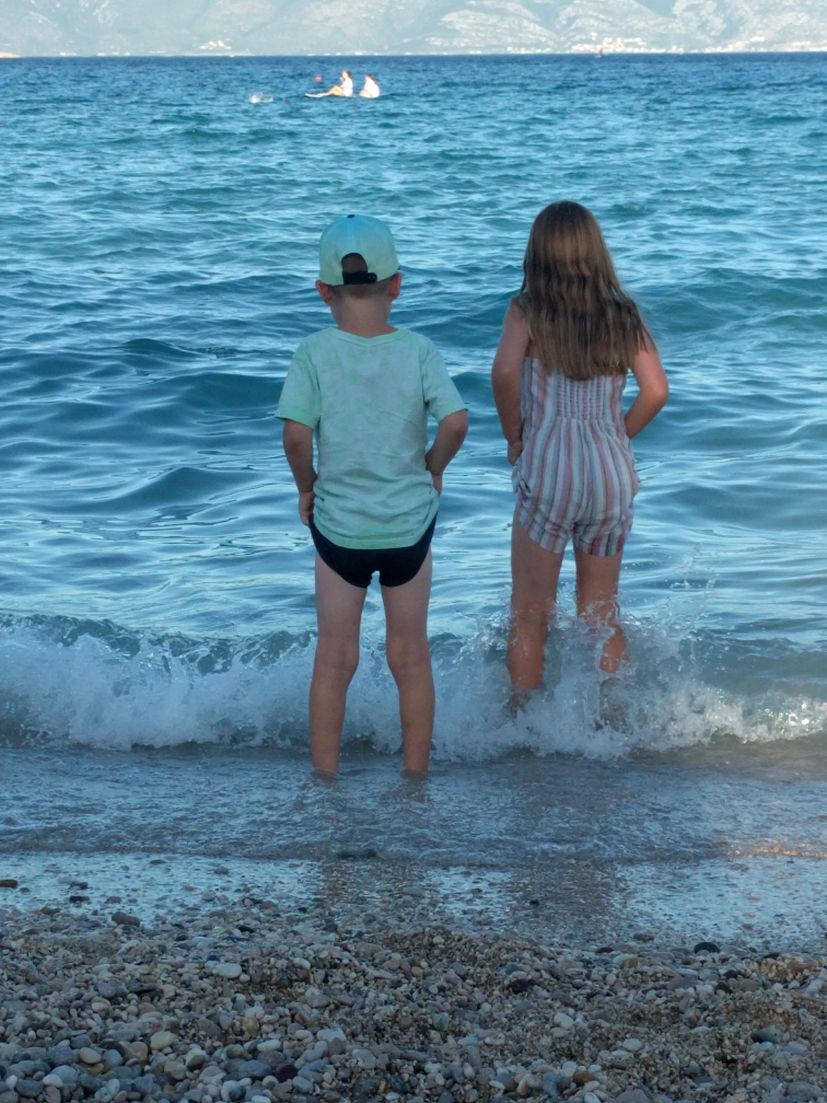
Kid’s first time touching the Adriatic (Photo: Private album)
Are you happy you moved?
Overall, yes. Especially when considering my children and the advantages the move has given them. The feeling of safety, and the connection we have with neighbors is a big addition. They are always outside with neighborhood children or in the many parks and playgrounds that are everywhere.
I enjoy the calm environment as well, and the ease at which you can get together with people. It is changing and different from years ago. I hope that Croatians recognize and hold onto that. Obviously the pressures of capitalism are affecting the culture here, but I feel people still have a sense of importance with taking time out to enjoy nature, companionship, and just being.
Naturally, there are fear and frustrations. I gave up a financially comfortable situation. I owned a house (with a mortgage). Now I am in a situation that is unknown. I can’t see myself ever owning a home here. The prices are such that even if I still had my U.S. salary I couldn’t buy something. We are comfortable renting where we are.
We were extremely fortunate to find a great situation with a wonderful landlady. Still, I find myself longing sometimes for that “old life.” There is the difference however. I wouldn’t trade the gains I have gotten for the good things I had. Still, it is difficult to reconcile the differences in life. We all forget the bad and lament the loss of the good. In moments like those, I need to go sit on my balcony and weigh the cost of having that old life back.
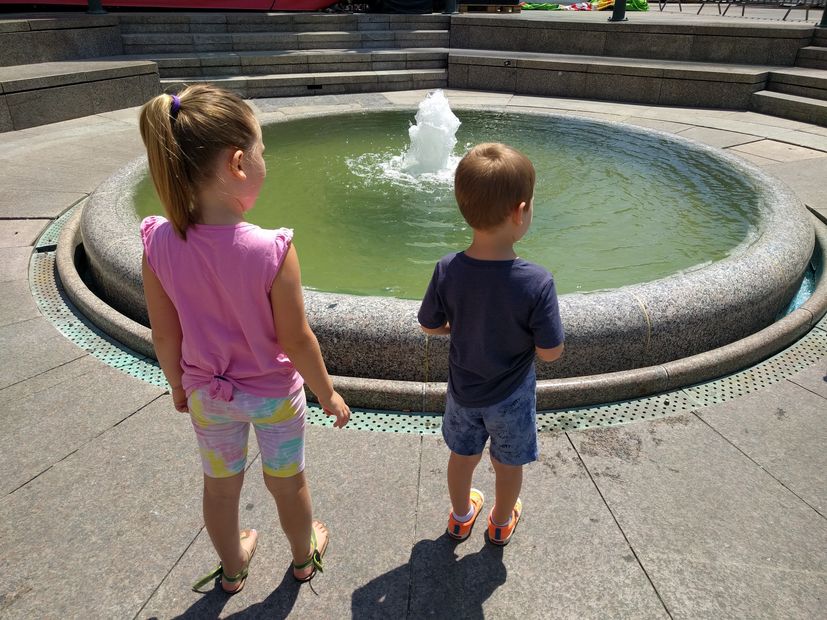
Manduševac fountain on Zagreb’s main square (Photo: Private album)
How is it going with the Croatian language?
I have spoken it since the late 90’s. Ljiljana was fluent by the end of her first year. James is doing very well with it as well. He started first grade this year so I expect him to really improve. Brooke speaks well enough to manage. Most people can speak English and so when need be the gaps are filled. Now that both kids are settled into school (and the same school), she is starting regular Croatian classes at the University of Zagreb.
What advice would you give to anyone thinking of moving to Croatia?
Don’t wait for a perfect situation. It will never come. Don’t listen to the naysayers. We had plenty of people tell us, “You’ll be back.” Maybe. Maybe it won’t work out and I will be force to go back. The fear of that failure and what everyone would say kept me saying no for a long time. Let go of everyone else’s judgment. There came a point where I realized I’d rather try and have to move back to the US than to play it safe and one day wonder, “What if?”

The family in Baška on Krk Island (Photo: Private album)

